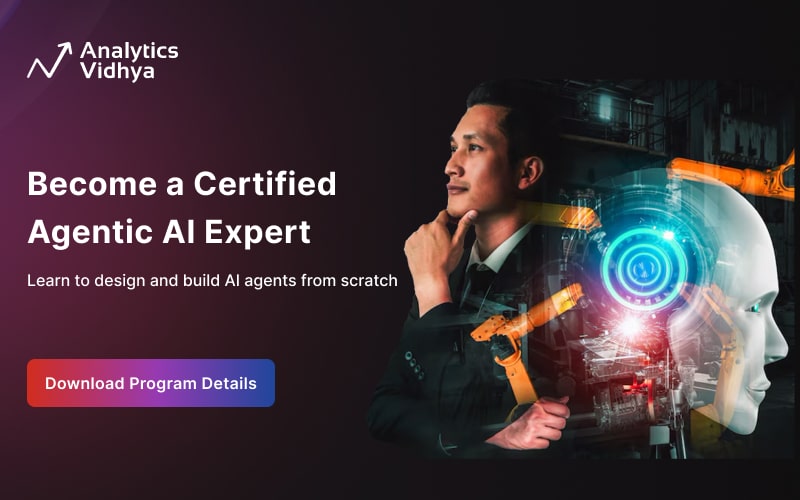In a groundbreaking session held at the Indraprastha Institute of Information Technology (IIIT) Delhi, Sam Altman, renowned entrepreneur and CEO of OpenAI, along with prominent experts Sandhini Agarwal and Atty Eleti, delved into the future of artificial intelligence (AI) and its profound impact on various aspects of society. The discussion covered topics ranging from the evolving job landscape to the potential for AI-driven startups in India. Let’s dive into the key highlights of this captivating conversation.

“We will fix the hallucination problem; may take a year or two.”
– Sam Altman, OpenAI CEO
In response to the reliability of the LLMs, Altman said that the company is working to fix the hallucination problem. However, it can take up to a couple of years.
Also Read: OpenAI’s Groundbreaking Solution: Ensuring AI Models’ Logic and Eliminating Hallucinations
The Transformative Power of AI: Jobs and Adaptation
“The future of work will undergo a massive transformation,” revealed Sandhini Agarwal, an AI Policy Researcher at OpenAI. She emphasized that AI, including the remarkable ChatGPT or Generative AI, would revolutionize how people perform their tasks. With AI gradually taking over smaller tasks, individuals will transition into evaluators of AI-generated output. The key lies in embracing change and continuously adapting to it to stay ahead in this ever-evolving technological landscape.
Also Read: OpenAI-backed Startup Beats Tesla with AI-Enabled Humanoid Robots
Embracing AI Early: The Path to Rewards
Sam Altman, the CEO of OpenAI, expressed his belief that AI is the most transformative technology mankind has ever invented. He further emphasized that nations and individuals who eagerly embrace AI at an early stage will reap substantial rewards. This highlights the importance of recognizing and leveraging the immense potential of AI in various domains.

OpenAI’s Commitment to India’s Startup Ecosystem
Addressing a question about OpenAI’s plans for India, Sam Altman highlighted their commitment to fostering Indian startups. Altman commended the impressive quality of Indian startups and revealed that OpenAI is excited to explore opportunities to fund and support Indian entrepreneurs. This endeavor aims to catalyze innovation and establish India as a thriving hub for AI-driven startups.
Also Read: India’s AI Leap: Homegrown ChatGPT to Empower Millions
Striking a Balance: Regulations and AI Development
Amidst concerns regarding regulatory frameworks keeping pace with disruptive technologies, a pertinent question arose: should development be paused until regulations catch up? Sam Altman expressed skepticism about pausing development, highlighting the potential risks of falling behind while others forge ahead. Instead, Altman proposed the establishment of norms, external audits, red teaming, and rigorous testing as more effective measures to ensure the safe and responsible development of AI systems.
Also Read: China’s Proposed AI Regulations Shake the Industry

Fine-Tuning AI Models: A Collaborative Opportunity
During the session, a follow-up question raised concerns about the potential threats posed by open-source AI models. Atty Eleti, a Software Engineer at OpenAI, shed light on the two crucial phases of AI model capabilities: pre-training and fine-tuning. Eleti explained that while pre-training builds the core knowledge of the model, fine-tuning aligns it with specific applications or capabilities. This collaborative opportunity allows developers to utilize the foundation model provided by OpenAI and customize it to address specific needs, benefiting the global community.
The Future Society: AI as an Integral Part
Sam Altman reflected on the initial notion of a single superbrain in the universe, asserting that the reality would involve numerous AI entities integrated into society instead. This insight underscores the growing significance of artificial intelligence as a ubiquitous presence. It prompts us to envision a future where AI systems play a pivotal role in shaping our daily lives.
Our Say
The session at IIIT Delhi with OpenAI CEO Sam Altman, Sandhini Agarwal, and Atty Eleti offered a profound glimpse into the future of AI. Their captivating insights on job transformations, the significance of embracing AI early, support for Indian startups, striking a balance with regulations, collaborative fine-tuning, and integrating AI into society painted a compelling picture of the evolving technological landscape. As AI continues to advance, individuals, businesses, and policymakers must stay informed and adapt, ensuring a prosperous future powered by the possibilities of artificial intelligence.







